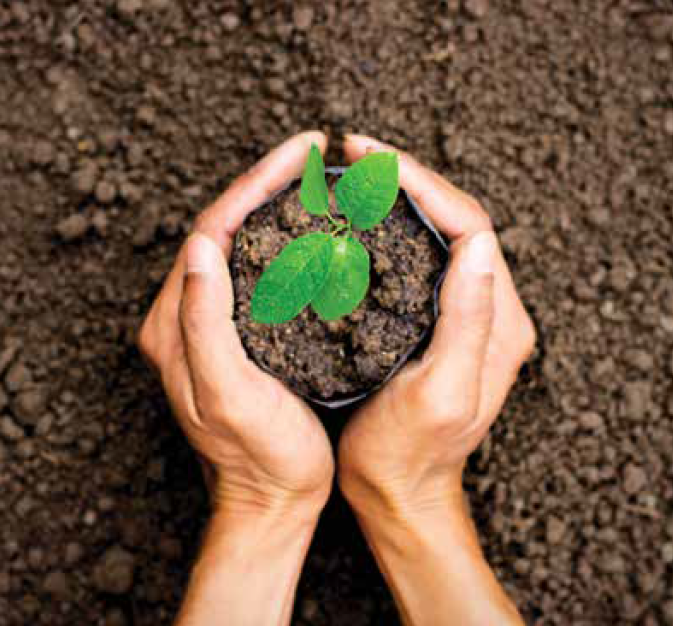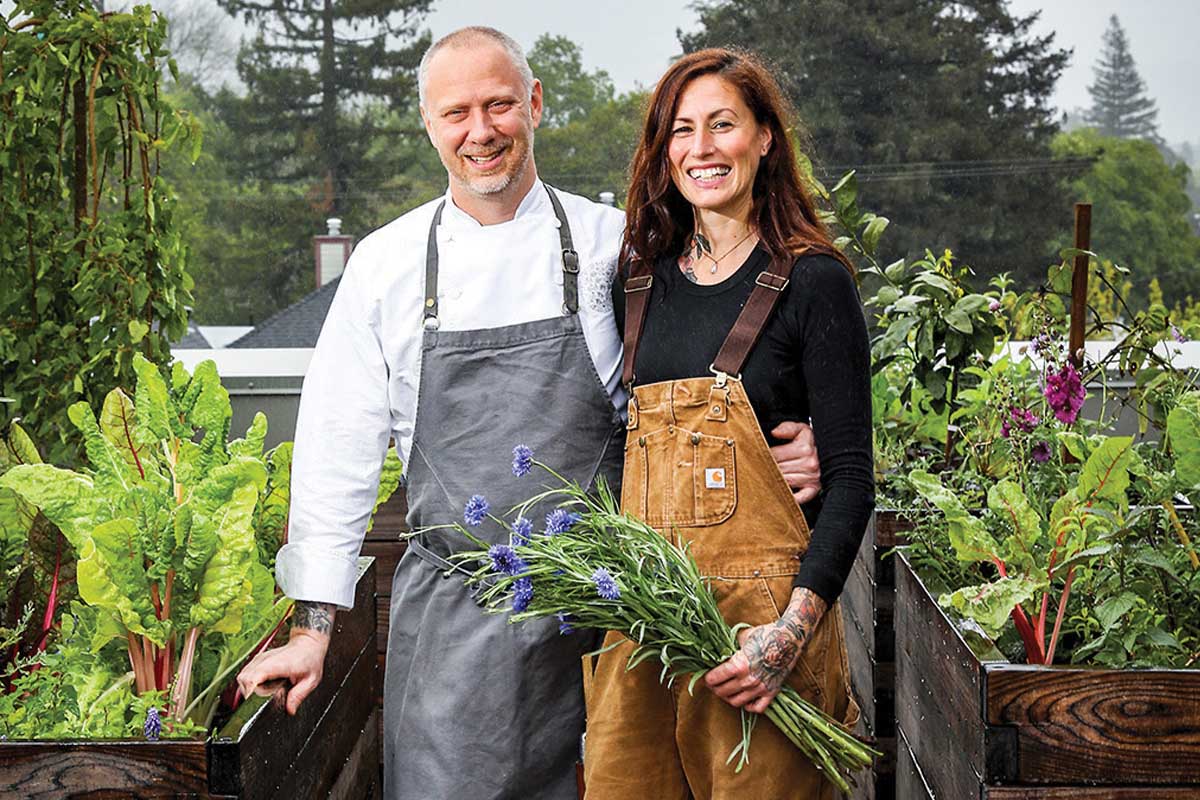Advertisement
Tree Hugging In The New Millennium
Tree Hugging In The New Millennium

At the molecular level, our relationship with trees is splendidly symbiotic. Humans exhale carbon dioxide, which trees use for photosynthesis; in return, trees contribute a hefty amount of the oxygen that keeps us alive. But trees are far more than handy sources of oxygen “on tap” for the animal kingdom. If we plant them, care for them, and treat them as the extraordinary riches they are, trees have the potential to bolster our well-being and even help rescue us from the climate crisis we now face.
Advertisement
Tale of a logger turned hugger
One of Canada’s most passionate defenders of trees is Michael Rosen, president of Tree Canada, a nonprofit with the goal of improving Canadians’ lives by planting and caring for trees. Rosen, a registered professional forester, has planted a lot of trees—hundreds on his one-acre property in the Gatineau Hills, and countless others through his work (Tree Canada’s total to date is more than 82 million). He has also—surprisingly, perhaps—cut down many trees, in logging jobs he held as a history undergrad.
Although Rosen jokes that his background could “destroy [his] reputation as Canada’s best-known tree hugger,” his early experiences with trees and the outdoors inspired him to switch from history to forestry. After 18 years as a forester with the Ontario government, Rosen moved to Tree Canada in 2002 with a broad understanding of the large- and small-scale benefits of trees, as well as the challenges that Canadian trees and tree lovers face.
Advertisement
Prescription for an ailing atmosphere
On the global scale, Rosen enthusiastically endorses the bold call to action made in a recent scientific report on the role of trees in combatting climate change. Planting a trillion new trees globally, the report proposes, could remove an enormous quantity of heat-trapping carbon dioxide from our atmosphere.
While the specifics of the proposal have been debated, Rosen maintains that the fundamental idea is “right on.” He notes that Canada currently has “millions of hectares” of available land (e.g. abandoned and marginal farmlands, quarries, and mining sites) that could be planted to sequester carbon.
His only caveat is this: we mustn’t believe that planting, or sponsoring, x-number of new trees will count as fulfilling our environmental responsibilities, for, ultimately, “there’s no substitute for changing behaviour […] and reducing carbon at the source.”
Assuming, however, that we’re minimizing our own carbon footprint (think transportation choices, for example) and lobbying governments and corporations to do the same, planting new trees is a powerful strategy for stabilizing our climate. Organizations such as Tree Canada offer many ways for individuals to support reforestation and afforestation (i.e. planting trees where none grew previously). See our sidebar for ideas. >>
Advertisement
The hardscrabble life of city trees
Tree Canada president Michael Rosen is keenly interested in helping urban trees survive in their “hostile” concrete environment. Visit alive.com for more on the state of Canada’s urban forests.
Many ways to hug a tree
- Get your hands dirty: be a volunteer planter with an organization such as Tree Canada, Forest Recovery Canada, the Nature Conservancy of Canada, or a local program.
- Donate to one of the above organizations. Tree Canada will plant a seedling for you for $4 or an urban tree for $40.
- Ask the corporate responsibility office of your favourite company to sponsor a tree-planting program.
- Volunteer to help care for your city’s trees—for example, by watering them in summer.
- Learn about the trees on your own property and ensure they’re well cared for.
Advertisement
Knowing what we’ve got … before it’s gone
In a twist on the old adage about not being able to see the forest for the trees, people routinely fail to appreciate all the wonderful benefits of these “common” perennials. Part of the problem is the kind of environmental apathy that Joni Mitchell famously sang about 50 years ago in her hit “Big Yellow Taxi.”
Another factor is the persistence of what Michael Rosen calls Canada’s “pioneer mentality.” In other words, we’re still capable of seeing trees merely as barriers to be cut down or as sources of construction materials.
For many of us, however, the problem is simply a lack of information. The more we know about the ways that living trees can enrich our world, the more likely we are to appreciate them, nurture them, and advocate for them. Check out our sidebar for a small sampling of tree benefits. Then, for good measure, get out there and hug a few of the trees in your life.
Some lesser known—but important—benefits of trees
- Trees reduce air pollution and noise levels.
- Trees’ cooling and insulating properties help us conserve energy indoors and keep us more comfortable outside.
- Greater neighbourhood tree cover corresponds to better overall physical health, mental health, and academic performance.
- Treed neighbourhoods are linked to stronger community ties and lower levels of violence and crime.
- Hospital patients with treed views enjoy faster recovery times, according to scientific research.
- Tree-lined streets appear narrower, which slows traffic and increases safety.
Advertisement
Earth Day 2020 – Celebrating 50 years!
The Climate Change year
Since 1970, the world has been marking every April 22nd as Earth Day. This year, the Earth Day Network has placed the focus on the enormous challenge and vast opportunities of action on climate change.
Climate change facts
Though it seems impossible, some people still resist the truth of climate change. Here are some quick fact arrows to store in your climate change quiver in case you encounter a member of that rare species—climate-denier.
> The current climate change cycle (the Earth is not simply experiencing a normal fluctuation) is occurring 20 to 50 times faster than the most rapid climate change events in Earth’s history.
> The world’s politicians may be resisting climate change’s reality (they’ve known about it since 1980), but 99 percent of the world’s scientists are in total agreement that human-caused climate change is happening—quickly.
> We may have had some especially cold weather last winter, but that doesn’t mean the climate isn’t warming. Weather and climate are distinctly different things: weather fluctuates from day to day; climate involves long-term trends and weather averages.
> For those who claim that species will adapt to changes in the climate, hit them with this arrow: climate change is putting more than one million species at risk of extinction. We could lose 30 to 50 percent of the total species found on Earth by 2050.
> And anyone who (perversely) insists that a changing climate bodes well for us should be reminded that:
- Economic losses will be enormous (the US, alone, stands to lose billions of dollars—10.5 percent of its GDP by 2100) in a warming world.
- Higher temperatures continue to cause a rising number of heat-related deaths.
- Air quality has worsened with higher temperatures and scientists have linked this to more violent crimes.
- Hurricanes are increasing in force and duration, with the number of categories 4 and 5 increasing over the last 30 years.
- Wildfires have been increasing in intensity and burning larger areas—releasing more carbon dioxide into the atmosphere, further contributing to global warming.
- Global species are going extinct at 1,000 times the natural rate of extinction.
What can you do?
Looking for a way to take action on climate change on Earth Day and beyond?
Go for a walk —and appreciate the species around you.
Leave the car in the garage —find an Earth-friendly way to make that journey.
Be a vegan for a day —and maybe longer!
Visit a local organic farm —and say thank you!
Ditch the plastic —carry your own reusable containers, bags, and straws.
Plant some seeds —to start your own organic garden, or join a farm-share group.
Clean your closet —donate your unused clothes to charity.
Learn more —about the Earth’s changing climate (earthday.org).
This article was originally published in the April 2020 issue of alive Canada, under the title “Tree Hugging In The New Millennium.“





